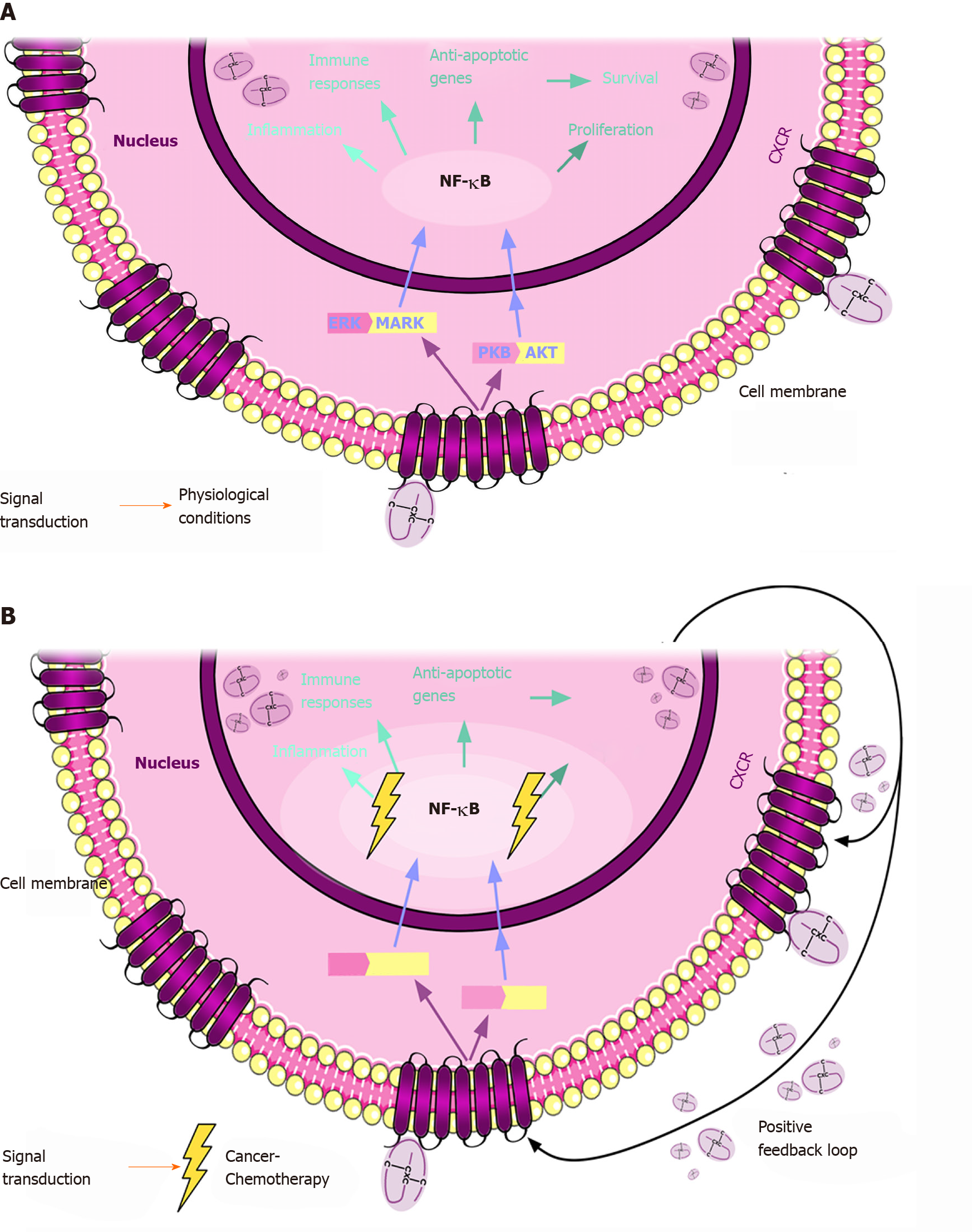Copyright
©The Author(s) 2018.
World J Gastroenterol. Nov 14, 2018; 24(42): 4738-4749
Published online Nov 14, 2018. doi: 10.3748/wjg.v24.i42.4738
Published online Nov 14, 2018. doi: 10.3748/wjg.v24.i42.4738
Figure 2 CXCL and CXCR network in physiological and cancer conditions.
A: The binding of CXCL to CXCR triggers the activation of signaling pathways, such as PKB/AKT and ERK/MAPK. Both pathways share NF-κB as a downstream factor which, in the nucleus, promotes the transcription of the CXCLs. These pathways maintain the physiologic conditions inside the cell. B: In a cancer cell exposed to chemotherapy, the situation is different. The chemotherapeutic treatment promotes the hyperactivation of these pathways. As a result, the CXCLs are also more abundant, promoting an autocrine response and, further, a positive feedback loop. This response results in pathological processes, such as tumor growth and metastasis, and in resistance to anticancer treatments. PKB: Protein kinase B; ERK: Extracellular signal-regulated kinases; MAPK: Mitogen-activated protein kinase; NF-κB: Nuclear factor κB.
- Citation: Heras SCDL, Martínez-Balibrea E. CXC family of chemokines as prognostic or predictive biomarkers and possible drug targets in colorectal cancer. World J Gastroenterol 2018; 24(42): 4738-4749
- URL: https://www.wjgnet.com/1007-9327/full/v24/i42/4738.htm
- DOI: https://dx.doi.org/10.3748/wjg.v24.i42.4738









